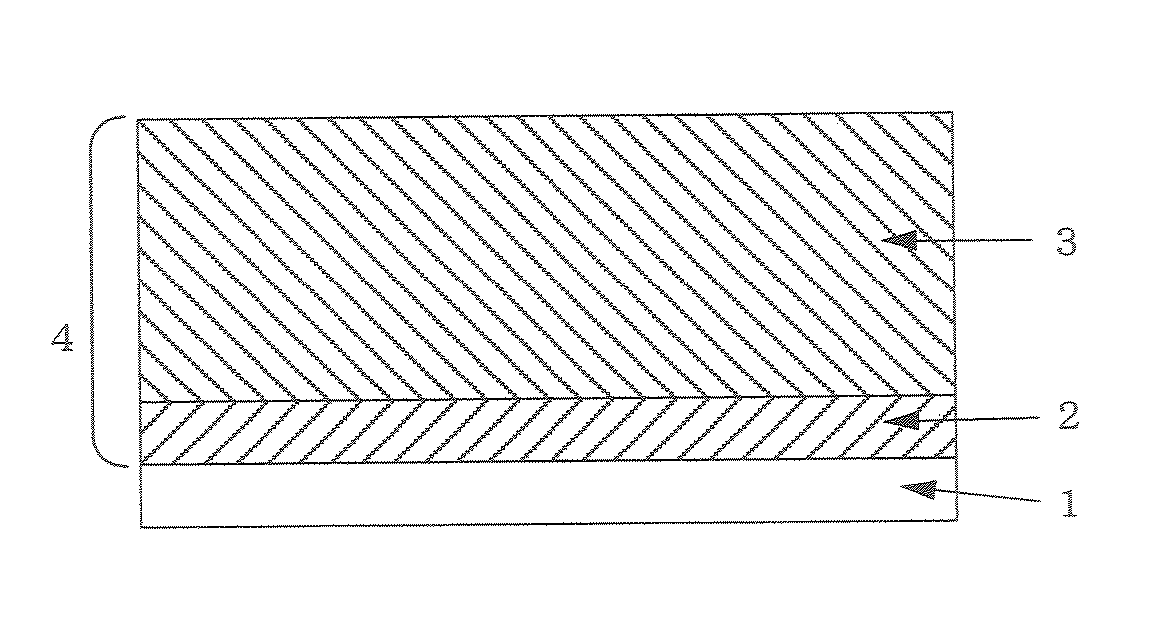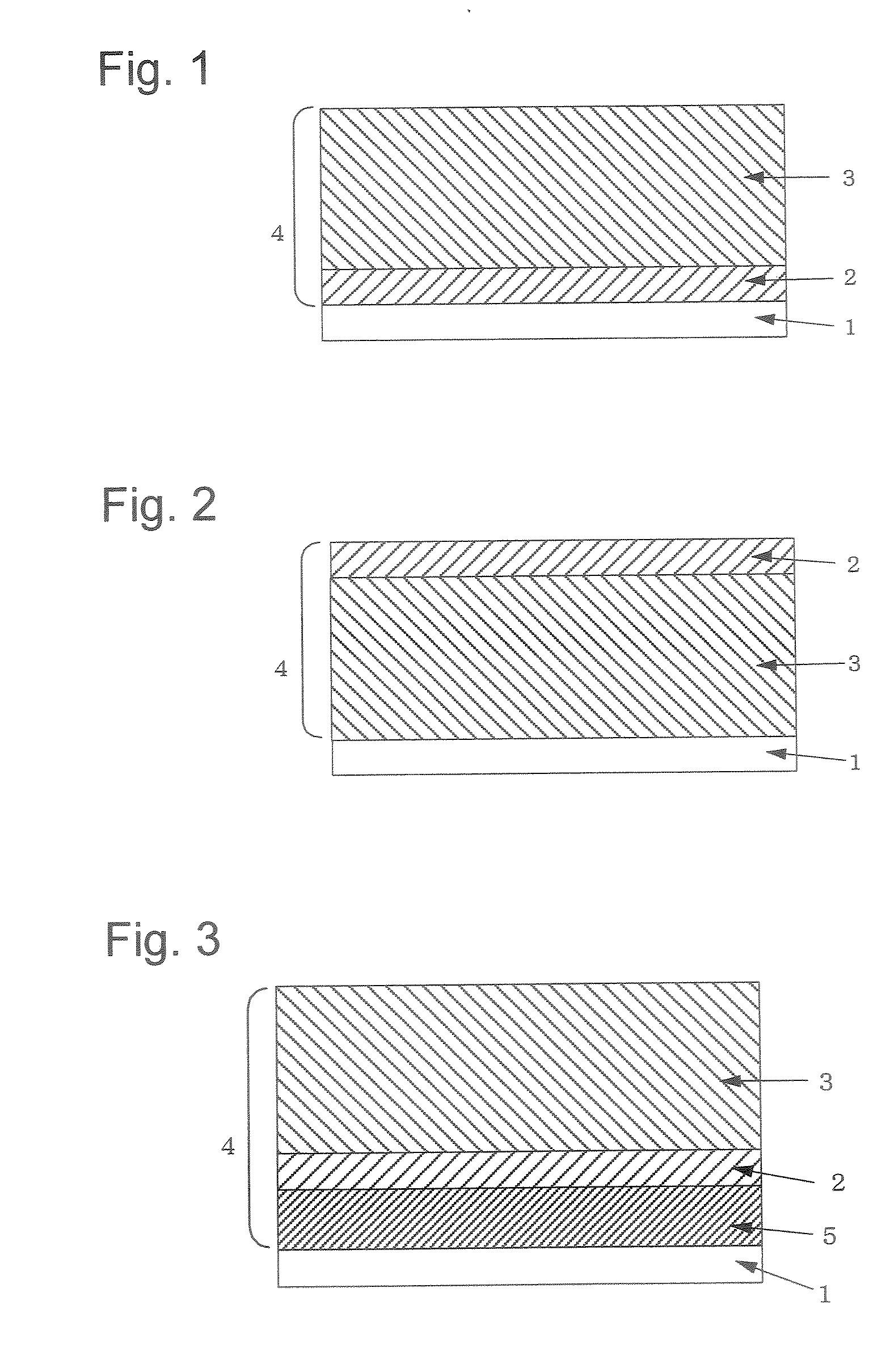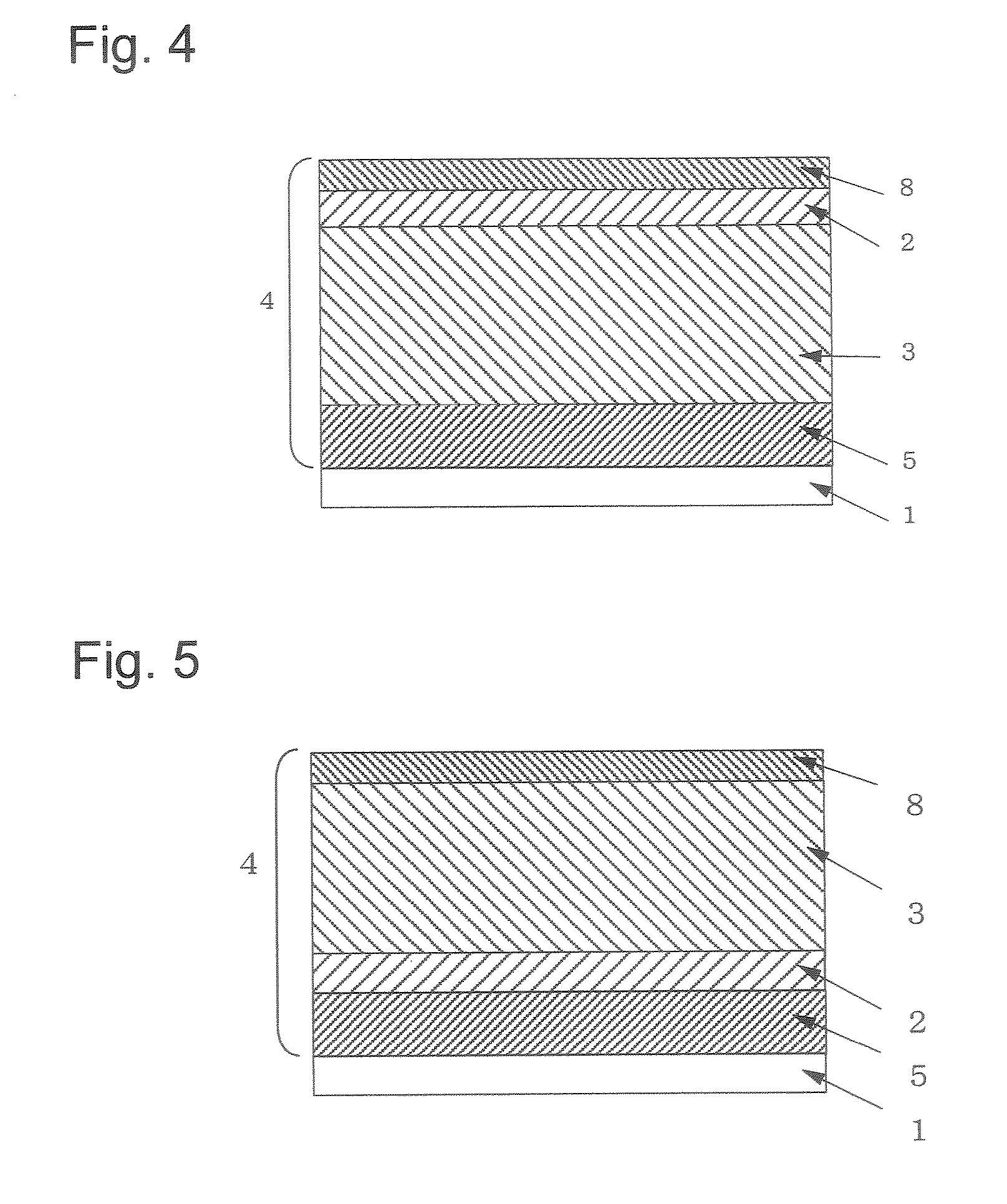Electrophotographic Photosensitive Body
- Summary
- Abstract
- Description
- Claims
- Application Information
AI Technical Summary
Benefits of technology
Problems solved by technology
Method used
Image
Examples
example 1
Synthesis Example 1
Synthesis of Compound (1)
[0099] 11.5 g (0.063 mol) of phenyl-p-tolylamine, 14.5 g (0.030 mol) of 4,4″-diiodo-p-terphenyl, 5.0 g (0.036 mol) of anhydrous potassium carbonate, 0.38 g (0.006 mol) of a copper powder and 15 ml of n-dodecane were mixed, and while introducing a nitrogen gas, the resulting mixture was heated to 200 to 210° C. and stirred for 30 hours. After completion of the reaction, the reaction product was extracted with 400 ml of toluene, insoluble contents were removed by filtration, and the filtrate was concentrated to dryness. The solid obtained was purified with column chromatography (carrier:silica gel, elute:toluene:hexane=1:4) to obtain 136 g of N—N′-diphenyl-N,N′-di-p-tolyl-4,4″-diamino-p-terphenyl (compound (1)) (yield: 76.4%, melting point: 167.2 to 168.2).
[0100] It was identified as compound (1) by elementary analysis and IR measurement. Elementary analysis values are as follows. Carbon: 89.23% (89.15%), hydrogen: 6.14% (6.12%), and nitr...
example 2
Synthesis Example 2
Synthesis of Compound (2)
[0101] 14.1 g (0.066 mol) of (4-methoxy-2-methylphenyl)phenylamine, 14.5 g (0.030 mol) of 4,4″-diiodo-p-terphenyl, 5.0 g (0.036 mol) of anhydrous potassium carbonate, 0.38 g (0.006 mol) of a copper powder and 15 ml of n-dodecane were mixed, and while introducing a nitrogen gas, the resulting mixture was heated to 200 to 210° C. and stirred for 30 hours. After completion of the reaction, the reaction product was extracted with 400 ml of toluene, insoluble contents were removed by filtration, and the filtrate was concentrated to dryness. The solid obtained was purified with column chromatography (carrier:silica gel, elute:toluene:hexane=1:2) to obtain 15.7 g of N—N′-di(4-methoxy-2-methylphenyl)-N,N′-diphenyl-4,4″-diamino-p-terphenyl (compound (2)) (yield: 80.0%, melting point: 180.8 to 183.4° C).
[0102] It was identified as compound (2) by elementary analysis and IR measurement. Elementary analysis values are as follows. Carbon: 84.67% (84...
example 3
Synthesis Example 3
Synthesis of Compound (3)
[0103] 33.3 g (0.25 mol) of 5-aminoindane (a product of Tokyo Chemical Industry Co., Ltd.) was dissolved in 250 ml of glacial acetic acid, the resulting solution was heated to 50° C., and 51.0 g (0.5 mol) of acetic anhydride was added dropwise thereto. After completion of the dropwise additions the resulting solution was stirred for 4 hours. After completion of the reaction, the reaction liquid was poured in 1,500 ml of ice water while stirring. Crystals precipitated were filtered off and washed with 1,000 ml of water The crystals obtained were dried to obtain 37.06 g of 5-(N-acetylamino)indane (yield: 84.6%, melting point: 100.5 to 103-85° C.)
[0104] 26.28 g (0.15 mol) of 5-(N-acetylamino)indane, 43.61 g (0.20 mol) of p-iodotoluene, 25.88 g (0.188 mol) of anhydrous potassium carbonate and 2.38 g (0.038 mol) of a copper powder were mixed, and while introducing a nitrogen gas, the resulting mixture was heated to 200° C. and stirred for 6 ...
PUM
 Login to View More
Login to View More Abstract
Description
Claims
Application Information
 Login to View More
Login to View More - R&D
- Intellectual Property
- Life Sciences
- Materials
- Tech Scout
- Unparalleled Data Quality
- Higher Quality Content
- 60% Fewer Hallucinations
Browse by: Latest US Patents, China's latest patents, Technical Efficacy Thesaurus, Application Domain, Technology Topic, Popular Technical Reports.
© 2025 PatSnap. All rights reserved.Legal|Privacy policy|Modern Slavery Act Transparency Statement|Sitemap|About US| Contact US: help@patsnap.com



